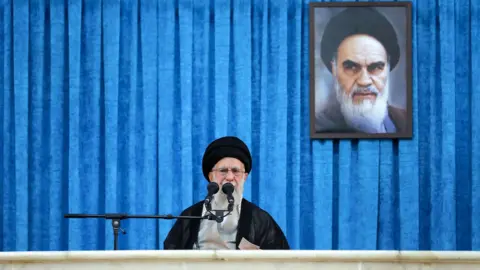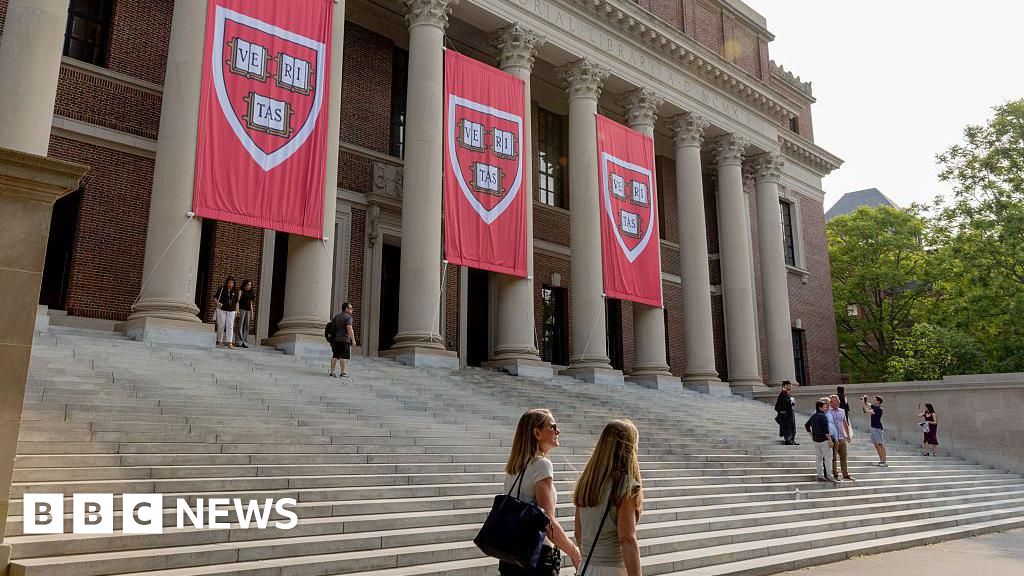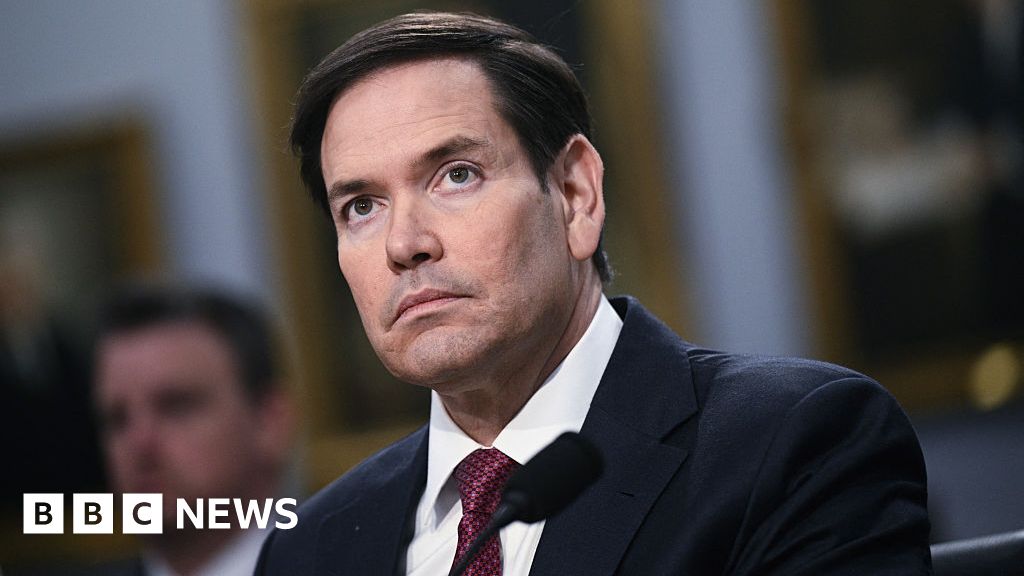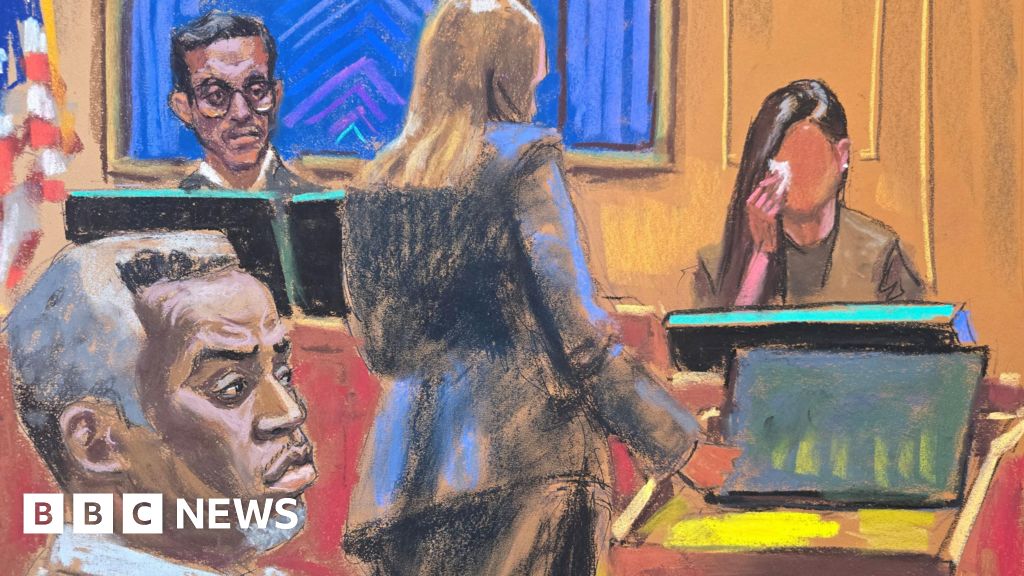ARTICLE AD BOX

 EPA
EPA
Ayatollah Ali Khamenei gave a speech to mark the anniversary of the death of Ayatollah Ruhollah Khomeini, the Islamic Republic's founder
Iran's Supreme Leader Ayatollah Ali Khamenei has criticised the US proposal for a new nuclear agreement, reiterating that it will not stop enriching uranium.
Iranian negotiators are set to respond in the coming days to what the White House called a "detailed and acceptable" plan presented at talks last Saturday.
US reports say it proposes that Iran halt all production of enriched uranium - which can be used to make reactor fuel but also nuclear weapons - and instead rely on a regional consortium for supplies.
As supreme leader, Khamenei has final say on the country's most important issues, including a potential nuclear deal.
In a speech marking the anniversary of the death of the Islamic Republic's founder, Ayatollah Ruhollah Khomeini, he said that was "100% against the idea of 'We can'" - a famous slogan of Khomeini.
"Uranium enrichment is the key to our nuclear programme and the enemies have focused on the enrichment," he added.
"The rude and arrogant leaders of America repeatedly demand that we should not have a nuclear programme. Who are you to decide whether Iran should have enrichment?"
Khamenei was speaking days after US President Donald Trump insisted that Iran would have to halt uranium enrichment.
Trump has warned Iran that it could face US and Israeli military action if the negotiations are not successful.
Under a 2015 deal with six world powers, Iran agreed to limit its nuclear activities in return for sanctions relief. That included not enriching uranium above 3.67% purity, which can be used to produce fuel for commercial nuclear power plants.
Trump abandoned the agreement during his first term in 2018, saying it did too little to stop a pathway to a bomb, and reinstated crippling economic sanctions to force Iran to renegotiate.
Iran insists its nuclear activities are entirely peaceful and that it will never seek to develop or acquire nuclear weapons. However, it has increasingly breached restrictions of the existing nuclear deal in retaliation for the sanctions.
A report from the International Atomic Energy Agency (IAEA) said last week that it had now stockpiled more than 408kg (900lb) of uranium enriched to 60% purity, near weapons grade, which would be enough to make nine nuclear bombs.
On Monday, Trump declared in a post on Truth Social that his administration "will not allow any enrichment of uranium" by Iran.
It came in response to US media reports that the proposal presented to Omani mediators by his special envoy Steve Witkoff would allow Iran to continue production of low-enriched uranium until a regional consortium had constructed facilities to enrich uranium for civilian reactor fuel under IAEA and US supervision.
Once the facilities were operational, Iran would have to stop all enrichment in the country.
According to Axios, Iran would also not be allowed to build any new enrichment facilities, would have to dismantle infrastructure for uranium conversion and processing, and would have to halt new research and development on centrifuges used to enrich uranium. Sanctions relief would be granted once Iran "demonstrates real commitment".
White House Press Secretary Karoline Leavitt declined to comment on the reports, but said it was in Iran's "best interest to accept it".
Iran's chief negotiator, Foreign Minister Abbas Araghchi, said on Sunday that his Omani counterpart had presented "elements of a US proposal, which will be appropriately responded to in line with the principles, national interests and rights of the people of Iran".
On Tuesday, Araghchi told an event in Beirut that the US proposal "contains many ambiguities and questions" and "many issues in the proposal are not clear".
"Continuing enrichment on Iranian soil is our red line and this is an undeniable fact," he said.
Last week, two Iranian officials told Reuters news agency that Iran could pause enrichment if the US released frozen Iranian funds and recognised its right to enrich uranium for civilian use under a "political deal" that could lead to a broader nuclear agreement.

 1 day ago
5
1 day ago
5








 English (US) ·
English (US) ·